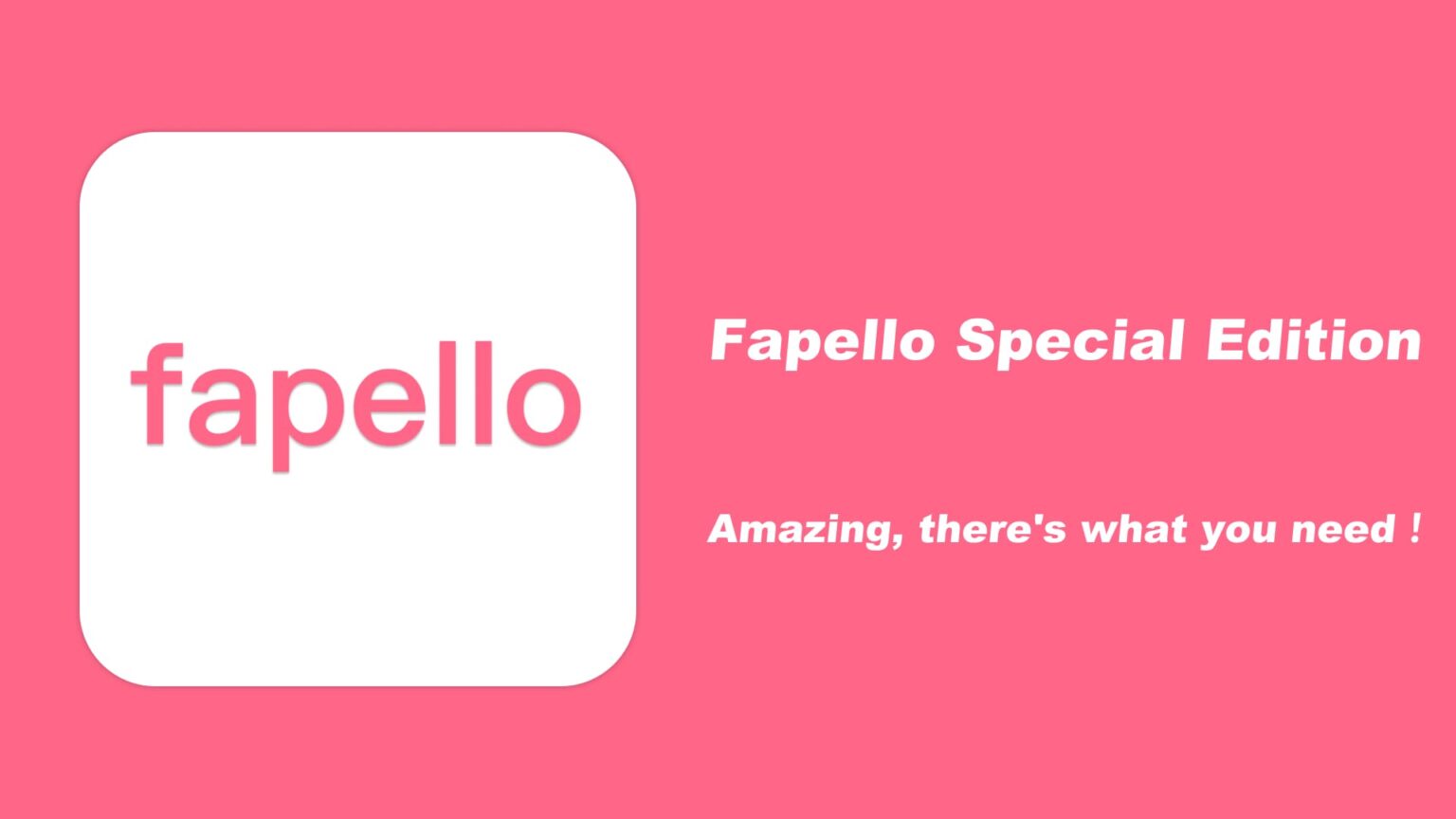Fapello Unveiled: Navigating The Complexities Of Online Content Sharing
Table of Contents
- Understanding Fapello: What is it?
- The Legal and Ethical Minefield of Fapello
- Navigating Content Removal: Strategies and Challenges
- Associated Tools and Their Risks: Fapello Downloaders
- Protecting Your Digital Footprint: Proactive Measures
- The Broader Impact: Digital Rights and Online Accountability
- Is Fapello "Real"? Addressing the User Experience
- The Future of Online Content: A Call for Responsibility
Understanding Fapello: What is it?
**Fapello** is an online platform that hosts and shares a vast collection of images and videos, often featuring individuals without their explicit consent. Its reputation stems from its claim to provide "free pictures," making it accessible to a wide audience. Users have reported using the site to "find people after not wanting to pay," suggesting it serves as an alternative to paid content platforms, or worse, as a repository for leaked or illicitly obtained material. The site's content primarily consists of user-uploaded media, which can range from personal photos to more explicit content. The domain "fapello.su" has been noted, indicating its presence on a specific top-level domain, though the exact ownership and operational base remain opaque, a common characteristic of sites operating in legally ambiguous territories. The very nature of Fapello's content model, which relies heavily on user contributions and offers material without charge, immediately raises red flags regarding copyright infringement and privacy violations. Unlike legitimate content-sharing platforms that implement strict moderation and consent protocols, sites like Fapello often operate in a grey area, exploiting loopholes in international copyright law and digital privacy regulations. This operational model makes it particularly challenging for individuals to assert their rights and reclaim control over their digital likeness.The Legal and Ethical Minefield of Fapello
The operation of a site like **Fapello** inherently steps into a complex legal and ethical minefield. The primary concerns revolve around copyright infringement, the dissemination of non-consensual intimate imagery (NCII), and the broader implications for personal privacy and digital security. For content creators, the unauthorized sharing of their work on Fapello represents a direct violation of their intellectual property rights. For individuals whose personal or intimate images appear on the site without their consent, the consequences can be devastating, impacting their reputation, mental health, and personal safety.Copyright Infringement and DMCA Notices
The Digital Millennium Copyright Act (DMCA) is a United States copyright law that provides a framework for copyright holders to request the removal of infringing content from online platforms. For victims of content shared on **Fapello**, filing a DMCA takedown notice is often the first, and sometimes only, recourse. The process typically involves sending a formal notice to the site's host or administrator, identifying the copyrighted material and asserting ownership. However, the effectiveness of DMCA notices against platforms like Fapello is often limited and frustrating. As noted in the provided data, individuals who have attempted to use DMCA have found that "Everytime i dmca them they take them down for like a month then put them back up." This pattern suggests a deliberate strategy to circumvent legal obligations, where content is temporarily removed only to reappear later, forcing victims into an endless cycle of monitoring and re-filing. The lack of permanent removal highlights a fundamental flaw in the enforcement mechanism against platforms that operate with little regard for copyright law. The email "johnfapello@gmail" has been mentioned as a contact point, but its efficacy and the significance of the ".su" domain in relation to legal jurisdiction remain unclear, adding another layer of complexity to content removal efforts.The Peril of Non-Consensual Content
Beyond copyright, the most egregious ethical and legal violation associated with sites like **Fapello** is the hosting and dissemination of non-consensual intimate imagery (NCII), often referred to as "revenge porn." This is not merely a privacy breach; it is a form of digital sexual violence that can have profound and lasting psychological, social, and professional consequences for victims. When NCII is posted on platforms that are difficult to regulate, victims face an uphill battle to regain control over their images and their lives. The existence of such content on Fapello contributes to a culture where privacy is disregarded, and personal boundaries are violated. The ease with which such images can be accessed and shared perpetuates harm and makes it incredibly challenging for victims to move forward. Legal frameworks are evolving globally to criminalize the sharing of NCII, but the transnational nature of the internet makes enforcement a significant challenge. Victims often feel helpless, facing the daunting task of identifying the source, contacting the platform, and navigating complex legal procedures, all while dealing with the emotional distress of their private moments being exposed.Navigating Content Removal: Strategies and Challenges
For individuals whose content appears on **Fapello** without their consent, the journey to have it removed is often fraught with challenges. The elusive nature of the site's operators and their apparent disregard for standard legal procedures make permanent takedowns incredibly difficult. However, understanding the available strategies and their limitations is crucial for anyone attempting to reclaim their digital privacy.Direct Communication and Its Limits
One of the first avenues people explore is direct communication with the site administrators. The email address "johnfapello@gmail" has been cited as a contact point. While attempting to reach out directly might seem logical, its effectiveness is questionable, especially given the site's track record of temporary removals. The ambiguity surrounding the ".su" domain further complicates matters, as it might indicate an operation outside the immediate jurisdiction of common legal frameworks, or simply a choice of domain to appear less susceptible to conventional legal pressure. Even if a direct contact method yields a temporary removal, the recurring issue of content reappearing after "like a month" suggests that direct communication alone is not a sustainable long-term solution. This necessitates a more persistent and multi-faceted approach, often involving repeated requests and exploring other avenues. The lack of a clear, responsive, and permanent content removal policy from Fapello itself places a significant burden on victims.Legal Avenues and Support Organizations
When direct communication proves insufficient, victims often need to escalate their efforts through more formal legal channels. This can involve: * **Formal DMCA Takedown Notices:** While Fapello may temporarily remove content, maintaining a record of all notices sent and their dates can be crucial for building a case if legal action becomes necessary. Repeated filings might also signal to search engines or hosting providers that the site is a persistent violator. * **Reporting to Web Hosts and Domain Registrars:** If the identity of Fapello's hosting provider or domain registrar can be determined, reporting copyright infringement or illegal content directly to them can sometimes lead to more effective action, as these entities are typically bound by terms of service and legal obligations. * **Law Enforcement and Legal Counsel:** For cases involving NCII, contacting local law enforcement is a critical step. Many jurisdictions now have laws specifically addressing the non-consensual sharing of intimate images. Engaging with legal counsel specializing in digital rights or cybercrime can provide expert guidance on navigating the complex legal landscape and pursuing civil remedies. * **Victim Support Organizations:** Numerous non-profit organizations specialize in assisting victims of online harassment, revenge porn, and digital privacy violations. Organizations like the Cyber Civil Rights Initiative (CCRI) or the National Center for Missing and Exploited Children (NCMEC) in the US (for child sexual abuse material) offer resources, legal advice, and emotional support. They can often provide templates for takedown notices, connect victims with pro bono legal services, and advocate on their behalf. * **Search Engine Delisting:** While not removing the content from Fapello itself, victims can request search engines (like Google, Bing) to delist specific URLs containing their non-consensual intimate imagery. This makes it harder for the content to be found through general searches, significantly reducing its visibility. The process of content removal from platforms like Fapello is arduous, requiring persistence, documentation, and often, external support. It underscores the urgent need for more robust international cooperation and stricter enforcement mechanisms against sites that profit from the exploitation of personal privacy and intellectual property.Associated Tools and Their Risks: Fapello Downloaders
The existence of platforms like **Fapello** often spawns a parallel ecosystem of third-party tools designed to interact with their content. The data mentions "Fapello downloader is a reliable online tool designed for downloading fapello videos with ease," and also refers to "pyfapello development on github" and a "lightweight cli tool" for Windows and Linux. While these tools claim to offer "100% security and ease of use," their very nature and association with a potentially illicit content source introduce significant risks that users must be aware of. * **Security Vulnerabilities:** Any third-party software or online tool, especially those operating outside mainstream app stores or reputable developers, carries inherent security risks. These "Fapello downloaders" could be Trojan horses for malware, spyware, or ransomware. Users downloading and installing such tools, particularly from unverified sources, put their personal data, system integrity, and financial information at severe risk. The claim of "100% security" should be viewed with extreme skepticism. * **Legality and Ethics:** Using a downloader for content from Fapello, which likely hosts copyrighted or non-consensual material, implicates the user in the act of copyright infringement or the possession of illicit content. Even if the downloader itself is technically functional, its purpose is to facilitate access to content that may have been obtained or shared illegally. * **Privacy Concerns:** These tools might track user activity, collect personal information, or even gain unauthorized access to a user's device. Given the dubious nature of the content source, it is highly improbable that the developers of such downloaders adhere to strict privacy policies or data protection regulations. * **Unreliability and Malfunction:** Beyond malicious intent, these tools may simply be poorly coded, leading to system instability, data corruption, or simply not working as advertised. Relying on them for any purpose is a gamble. The development of tools like `pyfapello` on platforms like GitHub, while seemingly transparent, does not automatically confer legitimacy or safety. Users should exercise extreme caution and, ideally, avoid engaging with any tools associated with platforms like Fapello due to the substantial legal, ethical, and cybersecurity risks involved.Protecting Your Digital Footprint: Proactive Measures
In an era where platforms like **Fapello** can emerge and thrive, proactive measures to protect one's digital footprint are no longer optional but essential. Preventing personal content from falling into the wrong hands is the most effective defense against privacy violations and potential exploitation. * **Think Before You Share:** Every piece of content shared online, whether on social media, messaging apps, or cloud storage, carries a risk. Assume that anything you post or send could potentially become public. Exercise extreme caution with intimate or sensitive images and videos. * **Understand Privacy Settings:** Regularly review and adjust the privacy settings on all social media platforms, messaging apps, and cloud services. Ensure that content is only visible to trusted individuals or groups, and avoid public sharing unless absolutely necessary. * **Strong, Unique Passwords and Two-Factor Authentication (2FA):** A significant number of online leaks occur due to weak or reused passwords. Use strong, unique passwords for every online account and enable 2FA wherever possible. This adds an extra layer of security, making it much harder for unauthorized individuals to access your accounts. * **Be Wary of Phishing and Scams:** Cybercriminals often use phishing emails or deceptive links to trick individuals into revealing their login credentials or downloading malware. Be skeptical of unsolicited messages and always verify the sender before clicking on links or downloading attachments. * **Regularly Monitor Your Online Presence:** Periodically search for your name, images, or unique identifiers online to see what information is publicly available. Tools like Google Alerts can notify you if your name appears in new search results. * **Secure Your Devices:** Ensure all your devices (smartphones, computers, tablets) are protected with strong passwords or biometrics, and keep operating systems and applications updated to patch security vulnerabilities. Use reputable antivirus software. * **Educate Yourself and Others:** Stay informed about common online threats and privacy best practices. Share this knowledge with friends and family, particularly younger individuals, to foster a more secure online environment for everyone. While no measure can offer absolute protection against determined malicious actors, a robust approach to digital hygiene significantly reduces the risk of becoming a victim of content exploitation on platforms like Fapello.The Broader Impact: Digital Rights and Online Accountability
The existence and persistence of platforms like **Fapello** underscore a critical challenge in the digital age: the struggle for digital rights and online accountability. These sites operate in a legal grey zone, often leveraging the global nature of the internet to evade jurisdiction and responsibility. This creates a significant power imbalance, where individuals are left vulnerable to widespread privacy violations with limited recourse. The core issue is not just about specific platforms but about the fundamental principles of digital citizenship. Every individual has a right to privacy, to control their personal data, and to be protected from exploitation online. When these rights are systematically undermined by sites that profit from unauthorized content, it erodes trust in the internet as a safe space for communication and expression. The broader impact extends to: * **Erosion of Trust:** The prevalence of non-consensual content and copyright infringement diminishes public trust in online platforms and the digital ecosystem as a whole. * **Victim Blaming:** Society often places the burden of protection on victims, rather than holding perpetrators and facilitating platforms accountable. This perpetuates a harmful cycle and discourages victims from seeking justice. * **Regulatory Gaps:** Current international laws and enforcement mechanisms often struggle to keep pace with rapid technological advancements and the borderless nature of online operations. This creates significant regulatory gaps that platforms like Fapello exploit. * **The Need for Global Cooperation:** Addressing sites that operate across borders requires unprecedented international cooperation among governments, law enforcement agencies, and tech companies. This includes harmonizing laws, improving cross-border investigations, and developing shared best practices for content moderation and removal. Ultimately, the challenge posed by Fapello and similar sites is a call to action for a more responsible and rights-respecting internet. It necessitates a multi-stakeholder approach involving policymakers, tech companies, civil society organizations, and individual users to build a digital environment where privacy is protected, consent is paramount, and accountability is enforced.Is Fapello "Real"? Addressing the User Experience
Based on user accounts, **Fapello** is "definitely real and definitely gives people free of pictures." This confirms its active operation and its function as a repository for user-uploaded content, accessible without payment. The phrase "I've literally used it to find people after not wanting to pay" highlights a specific user intent: to access content, potentially of individuals, without subscribing to or paying for legitimate platforms. This user experience, while seemingly convenient for some, is precisely what underpins the ethical and legal dilemmas associated with the site. The reality of Fapello is that it exists as a platform where content, often obtained or shared without consent, can be found. The ease of access, combined with the site's apparent resistance to permanent content removal, creates a significant problem for individuals whose privacy is violated. The user experience, therefore, is two-fold: for those seeking content, it offers a seemingly unrestricted gateway; for those whose content is featured, it represents a persistent digital nightmare. The lack of interactive features, such as the inability to post new comments or cast votes, as noted in some user discussions, further suggests a platform designed primarily for content dissemination rather than community engagement, reinforcing its role as a content dump rather than a social platform. This one-way flow of content makes it even harder for affected individuals to interact with the platform or its users to address their concerns directly.The Future of Online Content: A Call for Responsibility
The ongoing challenges posed by platforms like **Fapello** serve as a stark reminder of the responsibilities inherent in our increasingly digital lives. While the internet offers unparalleled opportunities for connection, creativity, and information sharing, it also presents significant risks when not approached with caution and ethical consideration. The future of online content must be built on a foundation of respect for privacy, unwavering commitment to consent, and robust legal frameworks that can effectively hold platforms accountable. This requires: * **Enhanced Digital Literacy:** Educating users about the risks of sharing personal information, identifying phishing attempts, and understanding the implications of online interactions. * **Stronger Platform Accountability:** Pressuring social media companies, hosting providers, and domain registrars to implement and enforce stricter content moderation policies and respond more effectively to reports of illicit content. * **Evolving Legal Frameworks:** Governments worldwide must continue to develop and harmonize laws that protect digital rights, criminalize the non-consensual sharing of intimate images, and provide clear avenues for redress. * **International Collaboration:** Addressing the transnational nature of online content requires unprecedented cooperation among nations to share intelligence, coordinate enforcement efforts, and establish global norms for digital conduct. * **Empowering Victims:** Providing accessible resources, legal aid, and emotional support for individuals affected by online exploitation, ensuring they have the tools and assistance needed to reclaim their digital integrity. In conclusion, while Fapello may offer "free pictures," the true cost is often borne by those whose privacy and rights are violated. Navigating this complex landscape demands vigilance, proactive measures, and a collective commitment to fostering a safer, more ethical digital environment for everyone. If you or someone you know has been affected by content shared without consent on platforms like Fapello, please seek support from legal professionals or reputable victim support organizations. Your digital rights matter, and there are resources available to help you. Share this article to raise awareness about the critical issues surrounding online content sharing and privacy.
Discovering Fapello: A Unique Journey Of Innovation And Creativity

What is Fapello and How Does It Work? - wheon

Fapello: Your Gateway to the Fapello Aesthetic - Fapello